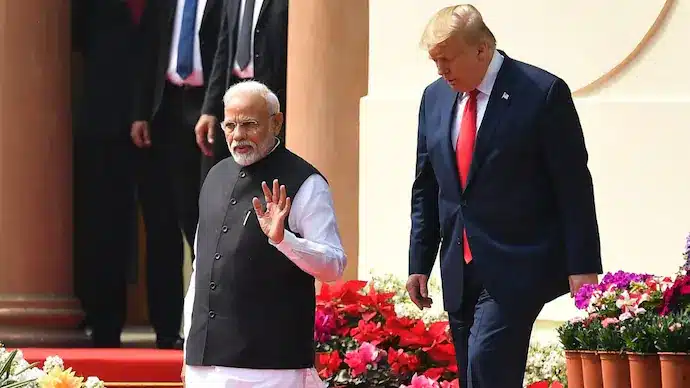Donald Trump Issues Trade Warning to BRICS Nations Amid US Trade Threat

US President Donald Trump has issued a stern warning to China, India, and other BRICS nations, threatening to impose an additional 10% import tariff on countries that align with the bloc’s anti-American policies. This announcement follows a summit in Brazil where BRICS leaders criticized Trump’s trade policies, labeling them as “indiscriminate,” “damaging,” and “illegal.” The escalating tensions highlight the growing rift between the United States and emerging economies, which collectively represent a significant portion of the global population and economic output.
Trump’s Tariff Threat
In a post on social media, Trump made it clear that any country supporting the BRICS coalition would face the new tariff. “Any Country aligning themselves with the Anti-American policies of BRICS, will be charged an ADDITIONAL 10% Tariff. There will be no exceptions to this policy,” he stated. This warning comes as the BRICS nations, which include China, India, Brazil, Russia, South Africa, Saudi Arabia, the UAE, Egypt, Ethiopia, Iran, and Indonesia, have united in their criticism of the US tariff regime. The bloc accounts for nearly half of the world’s population and approximately 40% of global economic output, making their collective stance significant in international trade discussions.
The BRICS leaders’ joint statement at the summit condemned the US tariffs, indicating a growing discontent with American trade policies. While some members aligned with the US attempted to soften the criticism by avoiding direct mention of Trump, the response from the White House suggests that such efforts were insufficient. Notably, Saudi Arabia’s foreign minister withdrew from the summit’s official proceedings, signaling a potential fracture in US-allied support within the group.
Impending Trade Deadline
Trump’s renewed tariff threat coincides with an August 1 deadline set by his administration for new trade agreements with global partners. Failure to reach satisfactory deals could result in sweeping unilateral duties, with BRICS nations likely facing the brunt of these penalties. The timing of this threat is critical, as it follows a BRICS statement that condemned recent US and Israeli airstrikes on Iran’s nuclear facilities. This condemnation is perceived as a show of solidarity with Iran, further complicating the geopolitical landscape in the Middle East.
As the deadline approaches, the pressure mounts on BRICS nations to navigate their relationships with both the United States and each other. The potential for increased tariffs could have significant implications for trade flows and economic relations, particularly for countries heavily reliant on exports to the US.
China’s Response to Criticism
In response to the accusations of hostility towards the United States, China defended the BRICS platform. Foreign ministry spokesperson Mao Ning emphasized that trade and tariff wars yield no winners and that protectionism is not a viable solution. Mao reiterated that BRICS is not aimed at any specific country but serves as an important platform for cooperation among emerging markets and developing nations.
The absence of key leaders at the summit, including Chinese President Xi Jinping, who has attended every BRICS summit for the past 12 years, has raised questions about the bloc’s unity and effectiveness. Russian President Vladimir Putin participated via video link due to his legal issues stemming from the Ukraine conflict. Despite these challenges, Putin asserted that BRICS has become a crucial player in global governance, highlighting its increasing geopolitical significance.
Future Implications for Global Trade
The ongoing tensions between the United States and BRICS nations could reshape global trade dynamics. As countries navigate the complexities of their relationships with both the US and the BRICS coalition, the potential for economic repercussions looms large. The situation underscores the shifting landscape of international trade, where emerging economies are asserting their influence and challenging traditional power structures.
The upcoming August 1 deadline will be pivotal in determining how these relationships evolve. With Trump’s administration poised to implement new tariffs, the stakes are high for all parties involved. The outcome of these negotiations could have lasting effects on global economic stability and the future of international trade relations.
Observer Voice is the one stop site for National, International news, Sports, Editor’s Choice, Art/culture contents, Quotes and much more. We also cover historical contents. Historical contents includes World History, Indian History, and what happened today. The website also covers Entertainment across the India and World.
Follow Us on Twitter, Instagram, Facebook, & LinkedIn

